Infotainment has become an essential component of a car's user experience and a fundamental aspect of the modern automobile.
In the past, manufacturers that had control over both the software and hardware platforms from start to finish delivered the most outstanding infotainment experience.
Tesla serves as a prime example of this vertical integration within the automotive industry, much like Apple does in the technology realm. The days of outsourcing your infotainment system are long gone, as ecosystems hold significant importance.
As a result, Mercedes-Benz aims to achieve a similar level of vertical integration with its ambitious new operating system, MB.OS.
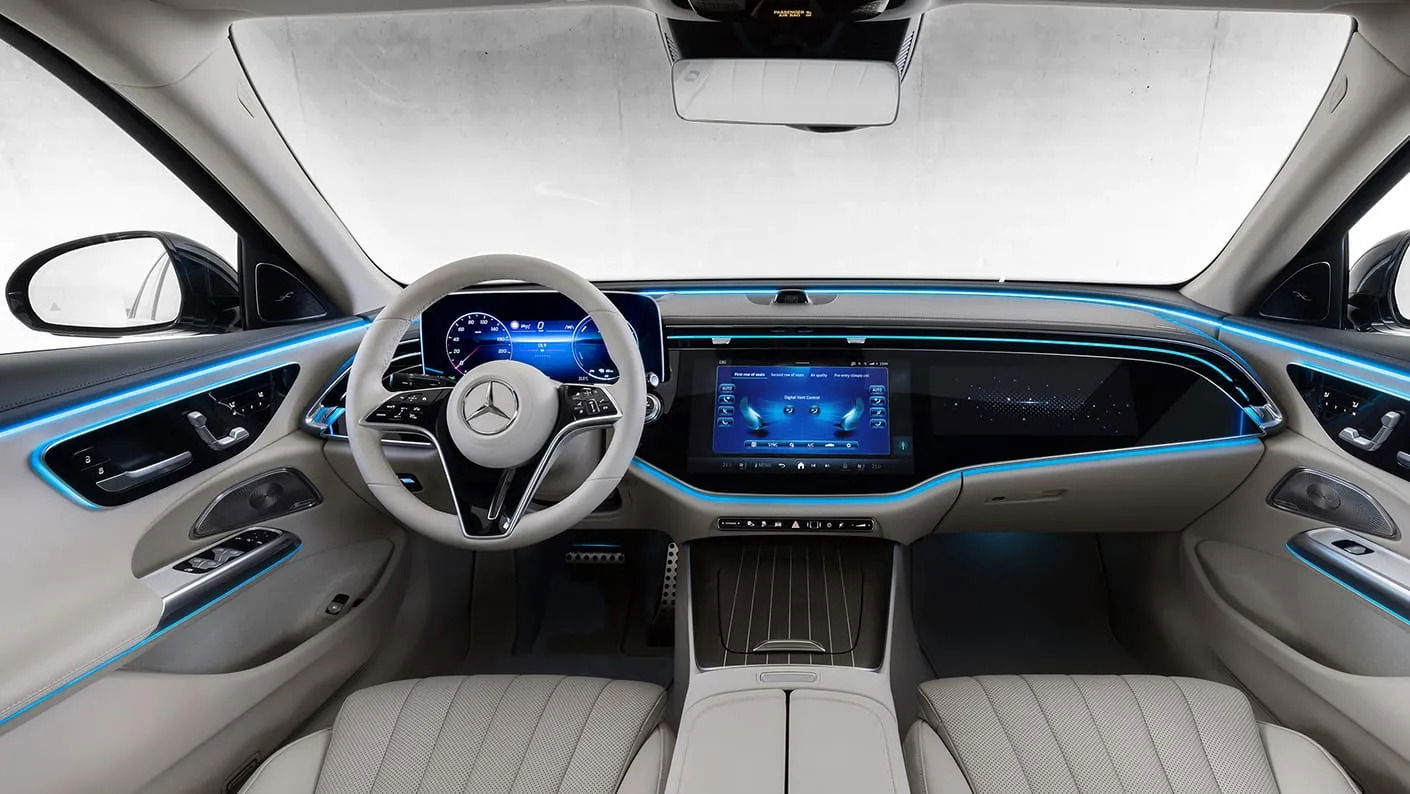
This comprehensive "chip to cloud" platform focuses on four key domains: infotainment, automated driving, body and comfort, and driving and charging. The company plans to introduce the entire suite of new technologies in its vehicles starting from 2025.
However, the first domain of MB.OS, which is infotainment, will be experienced in the 2024 Mercedes E-Class.
In February this year, an automotive journalist who had the opportunity to test drive the 2024 E-Class and experience the third-generation MBUX infotainment system firsthand at the Mercedes' R&D center in Sunnyvale, California, returned with such revealing tales of the newest OS.
The visual design of the system is reminiscent of the current MBUX Zero Layer interface, but with flatter and more smartphone-like app icons.
One notable improvement is the ability to directly control the temperature and seat heating/cooling from the control bar located on both sides of the home button.
The 2024 E-Class MBUX Features A Selfie Camera, Superscreen Display, And Motorized Vents
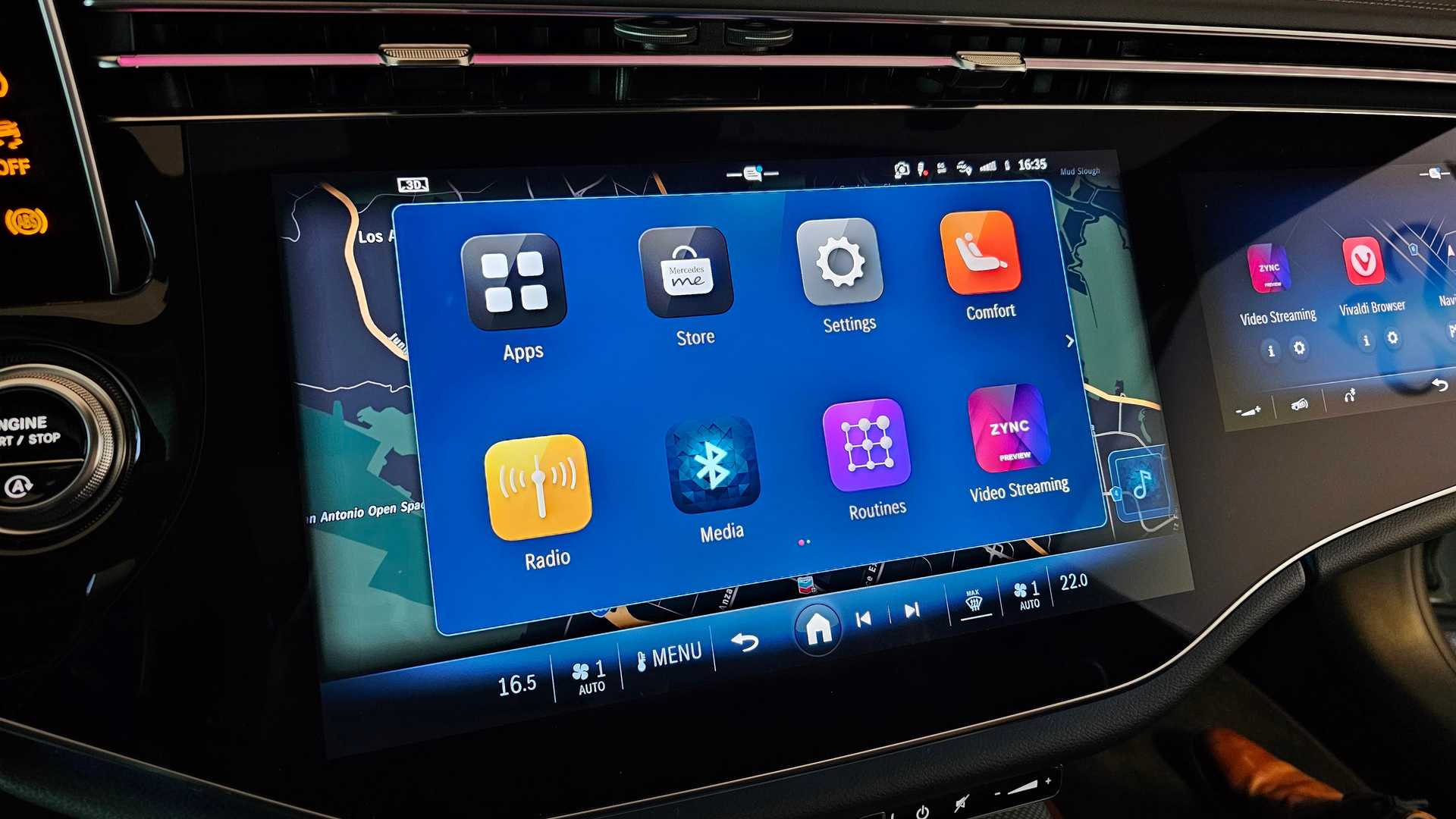
The 2024 E-Class is equipped with updated hardware for the MBUX system. The new Superscreen, similar to the Hyperscreen, consists of two displays positioned in the center and for the passenger.
However, the instrument panel is now housed separately in its own binnacle. Additionally, there is an optional selfie camera mounted in a small dome at the top center of the dashboard.
The air vents are motorized but can also be manually adjusted, and their positions are saved within your profile for personalized comfort.
The Superscreen in the 2024 E-Class is powered by a single, more robust computer, with the goal of delivering a smoother and more responsive interface. While there were noticeable improvements in performance, testers encountered a few minor glitches.
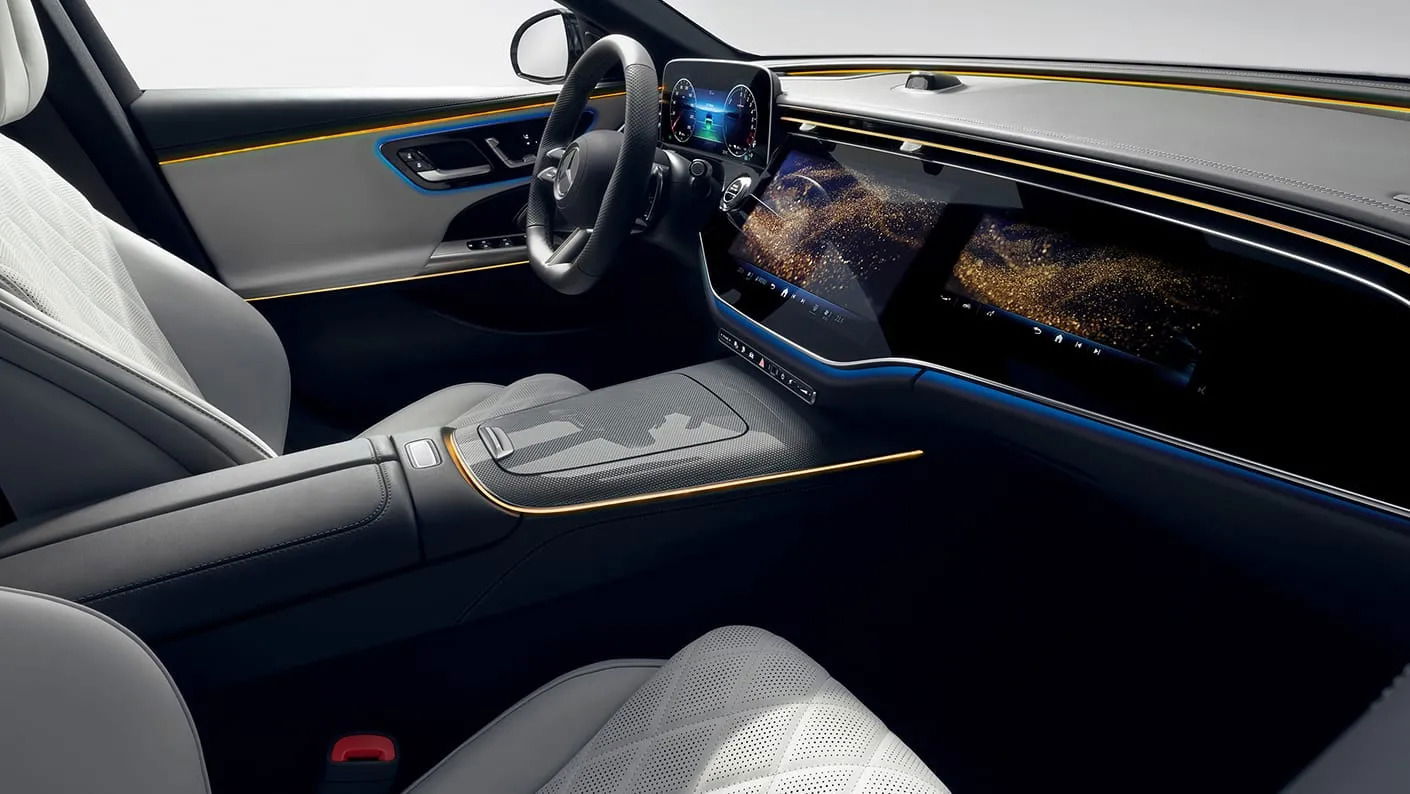
We certainly hope these issues gets resolved before the first cars are shipped.
One interesting feature is called Dual Light Control, which enables the driver to adjust the viewing angle and brightness of the passenger's display, ensuring that the driver is not distracted by the content being viewed by the passenger.
For audiophiles, the optional Burmester 4D sound system is available, boasting 17 speakers and support for Dolby Atmos.
To enhance the club-like atmosphere, there is a feature called Active Ambient Lighting, which synchronizes the ambient lights with the audio currently being played. Additionally, the updated hardware package includes standard 5G connectivity.
Mercedes-Benz Partners Google And Apple To Optimize The New MBUX’s Features
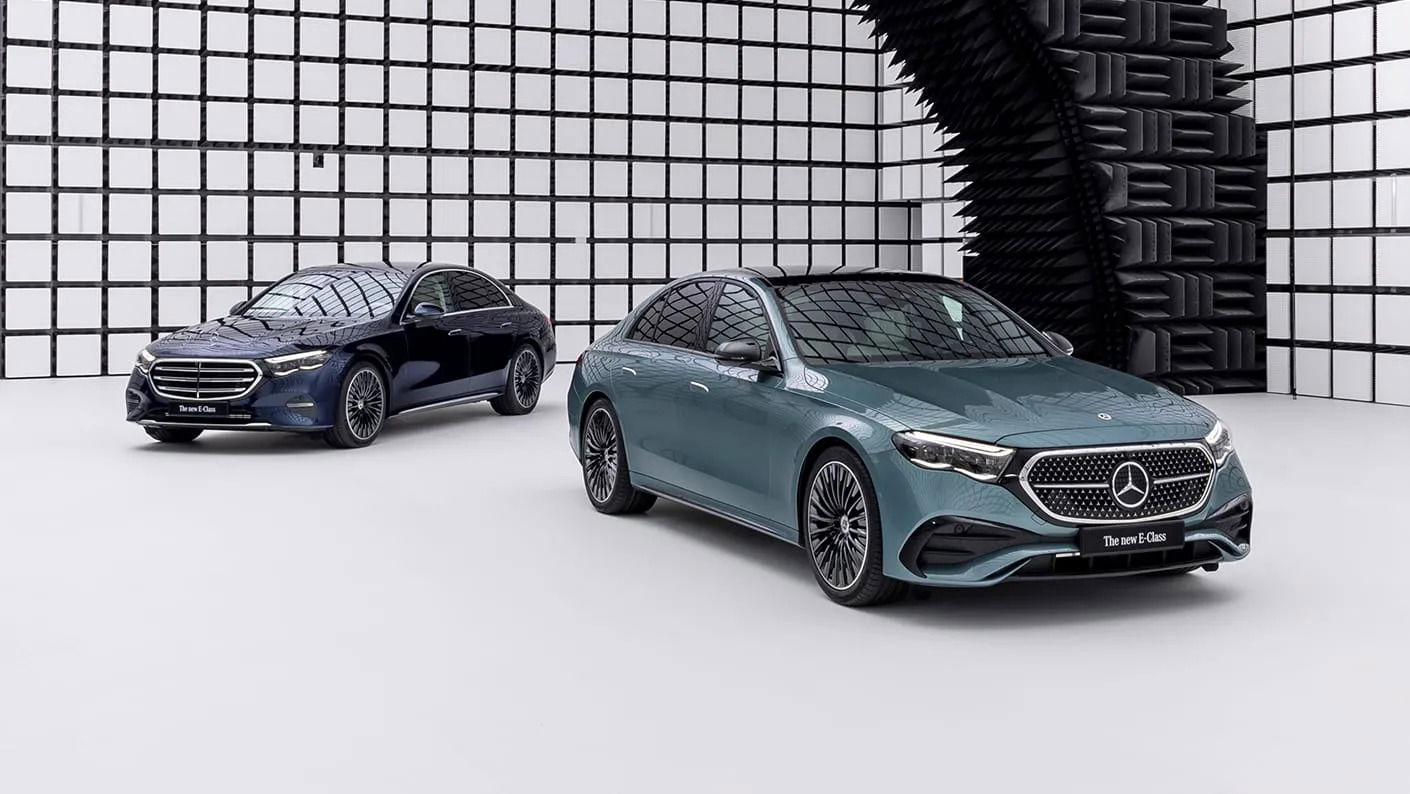
While Mercedes aims to maintain control over MB.OS, the company is open to collaborating with "local heroes," which are software services that are popular in specific regions.
An example of this is partnering with Google in North America. This approach allows Mercedes to integrate popular local services into their system while still maintaining overall control. In the 2024 E-Class, the third-generation MBUX incorporates several advanced features.
It utilizes Google Place Details for points of interest and seamlessly integrates Apple Music, offering Spacial Audio through Dolby Atmos.
Furthermore, it provides support for Apple CarKey and Apple HealthKit. The inclusion of Apple HealthKit allows the Mercedes Energizing Coach feature to personalize its program based on your stress level and sleep quality.
As for navigation, when the full-spec MB.OS is released in 2025, it will utilize Google Maps in the United States and Amap in China.
The 2024 Mercedes-Benz E-Class Infotainment System Have Android Apps Pre-Installed
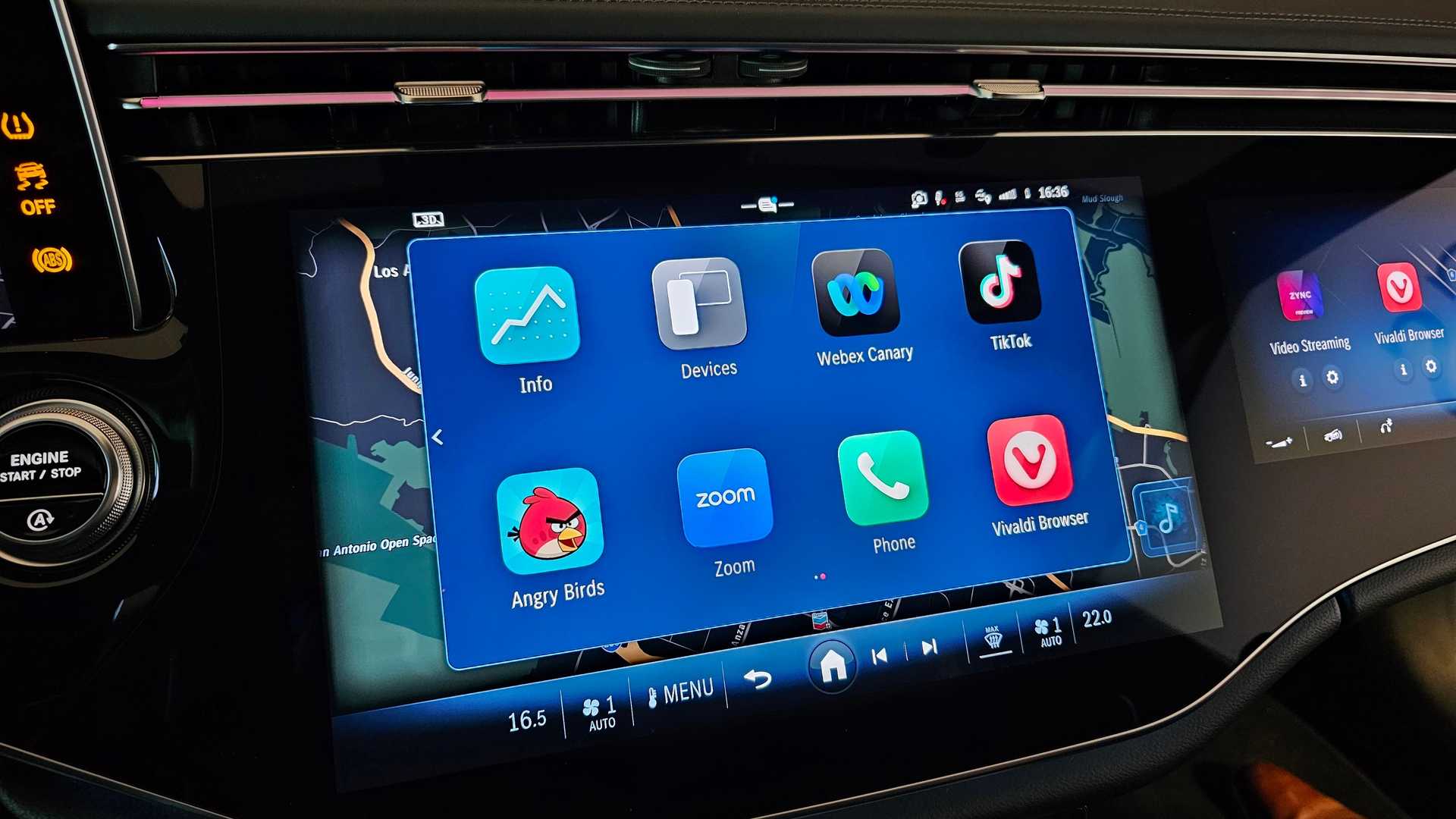
Angry Birds? Spotify? TikTok? Zoom? These are just some of the games and apps that the latest MBUX 3.0 will either offer pre-installed or easily installed as a third-party app.
Indeed, one particularly noteworthy feature of MB.OS, already present in the 2024 E-Class, is its compatibility with third-party Android apps. This is made possible by the implementation of Linux and Android app containers in the new MBUX.
However, it is important to note that accessing the Google Play store or sideloading Android apps directly is not supported. Instead, third-party apps can be installed through the Mercedes Me Store, using your Mercedes Me ID.
One significant advantage of MB.OS is that it allows any Android developer to bring their existing app to the platform or create new apps specifically for MB.OS. This flexibility ensures a wide range of app options for users.
In fact, the 2024 E-Class the journalist tested had popular apps such as Angry Birds, Spotify, TikTok, the Vivaldi web browser, Webex, Zoom, and Zync video services pre-installed. These are apps that many people are already familiar with.
The New MBUX Allows Your Car To Understand And Support Your Daily Routine
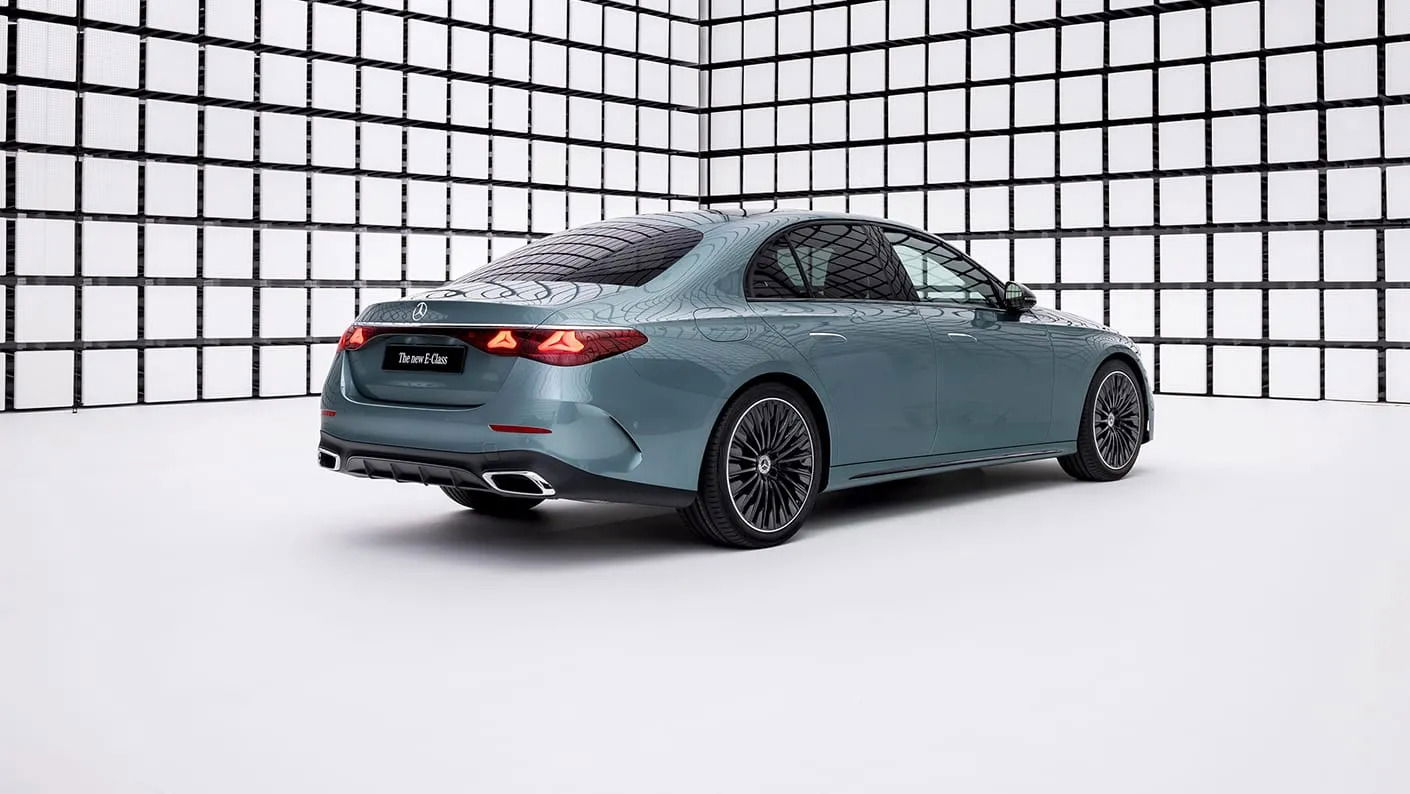
If you are familiar with using Google Home or Amazon Alexa to automate tasks in your home, you will find the concept of routines familiar on the MBUX system.
Routines on MBUX are essentially sets of rules that allow you to automate tasks within your car. For example, you can create a routine that automatically adjusts the temperature, increases fan speed, activates seat cooling, and switches to the Chill channel on SiriusXM when you encounter a traffic jam.
Furthermore, the 2024 E-Class is capable of suggesting routines based on your personal habits. This means that the system can analyze your behavior and recommend automated tasks that align with your preferences and routines.
Suppose you consistently activate the seat heating between 8 and 9 AM every morning when the car's temperature is below 45 degrees. In that case, a suggested routine will eventually appear in a distinct color on your list of routines.
You have the option to either save or delete this suggested routine based on your preferences.
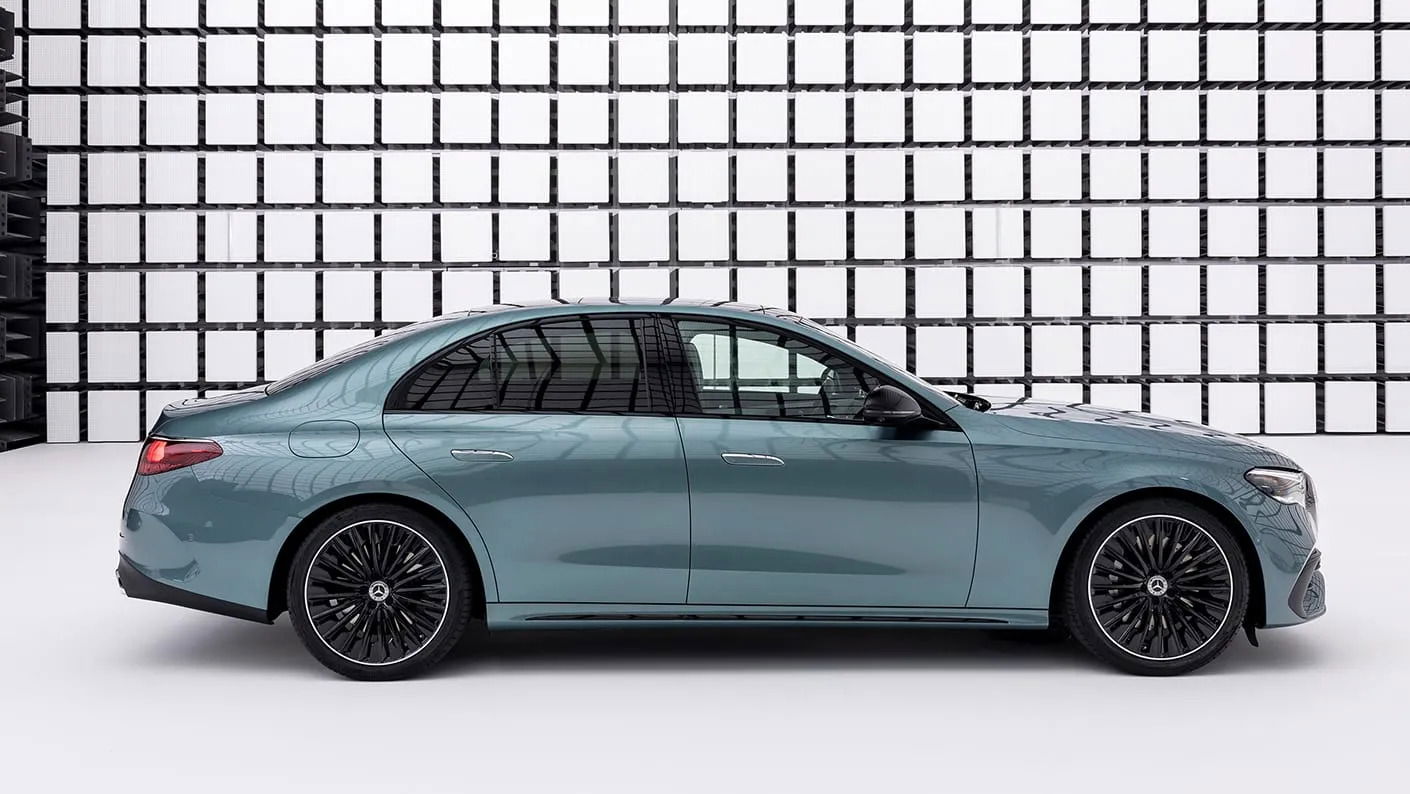
Summarily, we are thoroughly impressed with the capabilities of the infotainment system in the 2024 E-Class. Mercedes' third-generation MBUX offers improved responsiveness and user-friendliness while retaining the familiar Zero Layer interface.
The support for third-party Android apps is particularly exciting, and we are eager to witness the evolution of this ecosystem. We think it’s crucial that Mercedes curates the Mercedes Me Store effectively to ensure a successful future for the platform.
So, how much will the 2024 E-Class go for? The estimated starting price for the 2024 Mercedes-Benz E-Class is around $60,000, according to the Kelly Blue Book.